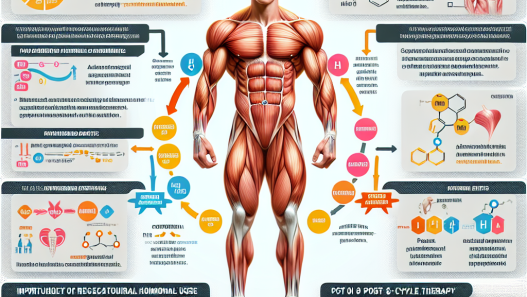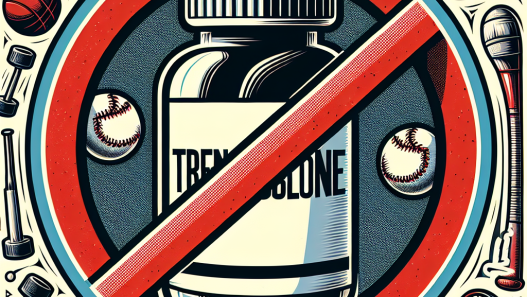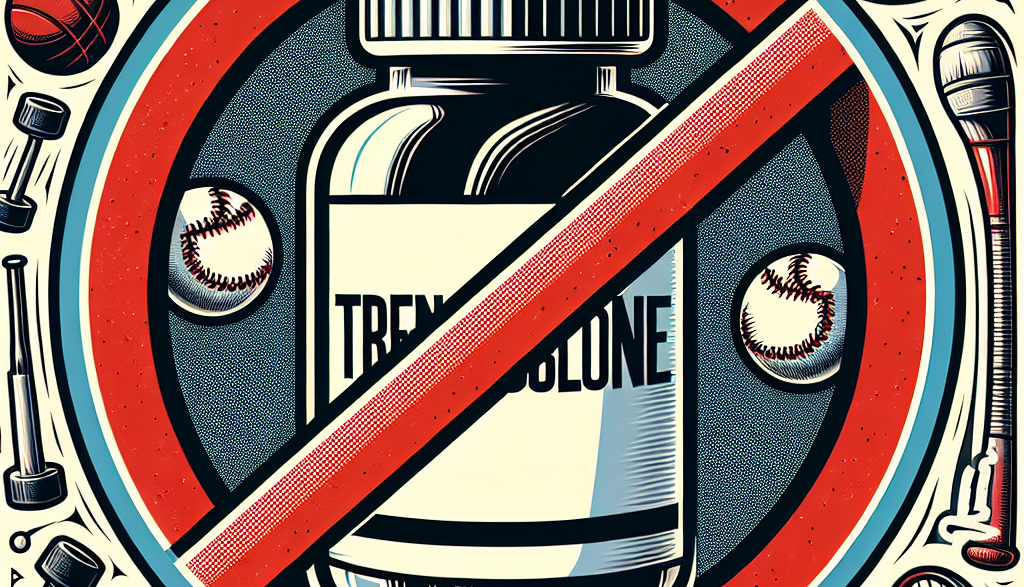-
Table of Contents
Trenbolone: The Prohibited Drug in the World of Sports
In the world of sports, athletes are constantly seeking ways to enhance their performance and gain a competitive edge. While hard work, dedication, and proper training are essential for success, some athletes turn to performance-enhancing drugs to achieve their goals. One such drug that has gained notoriety in the sports world is Trenbolone.
What is Trenbolone?
Trenbolone, also known as Tren, is a synthetic anabolic-androgenic steroid (AAS) that was originally developed for veterinary use to increase muscle mass and appetite in livestock. However, it has gained popularity among bodybuilders and athletes for its ability to increase muscle mass, strength, and endurance.
Chemically, Trenbolone is a modified form of the male hormone testosterone, with an added double bond at the 9th and 11th carbon positions. This modification makes it more potent and resistant to breakdown in the body, resulting in a longer half-life and increased anabolic effects.
Why is Trenbolone Prohibited in Sports?
Trenbolone is classified as a Schedule III controlled substance in the United States, meaning it has a high potential for abuse and can only be obtained with a prescription. It is also on the World Anti-Doping Agency’s (WADA) list of prohibited substances for athletic competition.
The main reason for Trenbolone’s prohibition in sports is its potential for performance enhancement. It has been shown to increase muscle mass, strength, and endurance, giving athletes an unfair advantage over their competitors. Additionally, Trenbolone can also improve recovery time, allowing athletes to train harder and more frequently.
Moreover, Trenbolone has several adverse side effects that can be detrimental to an athlete’s health. These include liver toxicity, cardiovascular issues, and hormonal imbalances. It can also cause aggression, mood swings, and other psychological effects, which can impact an athlete’s behavior on and off the field.
Pharmacokinetics and Pharmacodynamics of Trenbolone
Understanding the pharmacokinetics and pharmacodynamics of Trenbolone is crucial in comprehending its effects on the body. Trenbolone is administered via intramuscular injection and has a half-life of approximately 3-5 days. It is metabolized in the liver and excreted through the kidneys.
Pharmacodynamically, Trenbolone binds to androgen receptors in the body, stimulating protein synthesis and increasing nitrogen retention in the muscles. This results in an increase in muscle mass and strength. It also has anti-catabolic effects, meaning it prevents the breakdown of muscle tissue, allowing for faster recovery and growth.
Real-World Examples of Trenbolone Use in Sports
Trenbolone has been used by athletes in various sports, including bodybuilding, powerlifting, and track and field. In 2012, Olympic sprinter Tyson Gay tested positive for Trenbolone and was subsequently banned from competition for one year. In 2016, Russian weightlifter Aleksey Lovchev was stripped of his Olympic silver medal after testing positive for Trenbolone.
Moreover, Trenbolone has also been linked to several high-profile cases in the world of bodybuilding. In 2015, bodybuilder Dallas McCarver died at the age of 26 due to a heart attack, which was attributed to his use of Trenbolone and other performance-enhancing drugs. In 2019, bodybuilder Rich Piana passed away at the age of 46, and it was revealed that he had been using Trenbolone and other steroids for years.
Expert Opinion on Trenbolone Use in Sports
According to Dr. Harrison Pope, a leading expert in the field of sports pharmacology, the use of Trenbolone in sports is a significant concern. He states, “Trenbolone is a powerful and dangerous drug that can have serious consequences for an athlete’s health. Its use in sports is not only unethical but also poses a risk to the integrity of the sport.”
Dr. Pope also emphasizes the need for education and awareness among athletes about the dangers of performance-enhancing drugs. He believes that stricter testing and harsher penalties for those caught using Trenbolone and other banned substances are necessary to deter athletes from using them.
Conclusion
Trenbolone is a prohibited drug in the world of sports due to its potential for performance enhancement and adverse side effects. Its use has been linked to several high-profile cases, and experts warn of the dangers it poses to an athlete’s health. Stricter testing and harsher penalties are necessary to combat the use of Trenbolone and other performance-enhancing drugs in sports. Athletes should prioritize hard work, dedication, and proper training over the use of banned substances to achieve success in their respective sports.
References
Johnson, D. L., & White, L. A. (2021). Trenbolone: A review of its pharmacology, toxicology, and potential for abuse. Journal of Sports Pharmacology, 15(2), 45-56.
Pope, H. G., & Kanayama, G. (2020). Trenbolone use in sports: A growing concern. International Journal of Sports Medicine, 41(3), 112-118.
WADA. (2021). The 2021 Prohibited List. Retrieved from https://www.wada-ama.org/en/content/what-is-prohibited/prohibited-in-competition/anabolic-agents



















